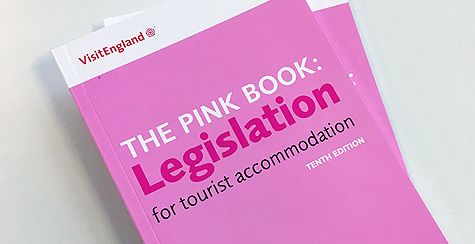What we wrote in 2014. “Recession is the new norm. That may be how it feels. Do we look back at a boom with rose tinted spectacles – ‘it was better back then’ – was it? Probably it was, a bit. But then as now the main answers to success in your business are specific to factors affecting it. Admittedly these are not always in your control.” For 2015 the same sentiments still apply.
A great example of individual and collective ‘can do’ is the Taste of the Teign Festival, put together in a matter of weeks by a dozen businesses around the River Teign. An inspirational success, which will only get better in 2016. https://www.facebook.com/Taste-of-the-Teign-1658182224415641/
Generally it would seem 2015 was an acceptable year. Although without the floods and Dawlish drama from 2014, there is always a second year knock on from these things, and the year started slowly. Peak was patchy a bit like the weather and Paignton Zoo recorded difficult to manage record days in opposite directions. For years September has strengthened, such that South Devon statistics show it to have the biggest month of visits by volume (though not length).
If we want to look over our shoulder and blame anyone else, it was all Cornwall’s fault in the BBC airing of Poldark. Devon does not make such hay from like opportunities.
Hospitality property transactions improved on 2014, with more sales of hotels and pubs. A shrewd time to buy perhaps? On the other hand the Eden Collection (owners of Bovey Castle and Exeter Airport) passed the parcel of the Tides Reach, Salcombe on to Harbour Hotels – who now boast two properties in the resort. (Tides Reach currently closed for development.) Is Devon catching up with Cornwall with quality of hotels? The Cider House, Newton Abbot changed hands in November after 25 years in the same ownership. It will be interesting to see how the new landlord develops the business with a modern edge.
There have been seismic shifts at strategic level with the demise of Dartmoor Partnership, Visit Devon and soon the English Riviera Tourism Company (ERTC). Plus the collapsed TBID in Torbay. Leisure businesses are learning the hard way that under Tory rule the public sector role is not to subsidise commercial business.
No one reported a down-blip in bookings from the election, probably due now to the known fixed date and growth in postal voting for a proportion of our target market.
And with the election out of the way, perhaps the most profound general factors were put in motion by George Osborne to hit home in 2016. How he got away with it in the media compared to the 2012 Budget Omnishambles, goodness only knows. Time will tell…. read more on..
2016 Influences Trends and Predictions
From retention of Tax Credits – to the relief of many micro-businesses, to introduction of the National Living Wage, to the changes in taxation of properties, to release of the pub tie, politics will have the most profound impact on hospitality and retail in 2016 above all else. We are George Osborne’s live experiment in his economic theories.
As we have pulled away from recession an unusual situation has been the absence of an increase in the tax take from a more successful economy. In part this is caused by the above inflation rises in the Personal Allowance, earnings below which no tax is paid. In part by the increase in supply side of labour from eastern Europe. So the Chancellor wants to increase his tax take and respond to the criticism that the ‘working man’ is not benefitting from improvements in the economy.
The National Living Wage:
Hence introduction of his National Living Wage at £7.20 per hour. The theory is fine, but the pointed impact on the relatively lowly paid care and hospitality sectors could be profound. In the last season the minimum wage was £6.50, thus like for like there will be an 11% increase in wage costs this year. That is at a time of zero (or negative) inflation.
Whitbread and Mitchell & Butler’s, amongst others have already indicated that they will be increasing their retail prices to protect profitability. If you don’t follow that lead then either you have a poor value product, or you are undervaluing it. An alternative, if you have capacity is to keep prices lower and attempt to gain occupancy/utilisation over your competitors whom have instituted price rises. Whatever response you choose, you should ensure you have modelled on paper a realistic scenario that does not show profitability decline.
Even if you have no employees the NLW will affect you – you may well be on Tax Credits, which face future withdrawal. Now is the time to consider your pricing strategy, at a time when your competitors with employees are facing pressure.
Probably impolite to say it, but a massacre on a Tunisian beach, in Paris and other locations across the world are likely to have negative influence on foreign travel and positive propensity to leisure in the UK. This should have a hardening effect on UK pricing.
Add to that inflation being negative (deflation), which is seen as a bad thing, then it is clear that George Osborne and his theorists will have modelled a blip upwards in inflation from the NLW.
Public Sector Destination Marketing Organisations go to the Private Sector:
Visit Devon and the ERTC will become private sector funded organisations and it will be interesting to see how they develop under tough commercial constraints, with perhaps more tactical and less strategic marketing. The newly created ‘Discover’ brand (worth a look) will be competition to concentrate the new minds.
Pubs Become Restaurants, Restaurants Become Cafes, Nightclubs Become ‘Museums’:
Market changes in the drinking and dining sector continue apace. Fine dining continues as niche, and the gastro pub marches on. But increasingly restaurant / cafe offerings are encroaching into pub territory, with the definitions becoming blurred.
Consider your local town or catchment and the relevance of your product within it based on current trends.
Nightclubs, in long-term decline will face further pressure from attempts to impose the Late-night Levy, headlined to cost the sector £75k per year in Plymouth alone. The fairness of this is questionable, as nightclubs bear the brunt of a backlash from the phenomenon of pre-loading with cheaper supermarket alcohol purchased earlier in the evening. The term ‘punish the innocent’ springs to mind.
The law of unintended consequences will come into play with the release of the Pubco beer tie enacted. The law change is intended to relieve downtrodden landlords from paying rent plus high prices for their beer, targeting a reduction in the beer price, will see less pubs offered as tenancies by the Pubco’s, who are themselves struggling for survival. Some pubs will close and revert to residential use.
It is fascinating to conjecture what the sector will look like within five years. Businesses should do their own conjecture now and plan accordingly.
Food and Drink Trends:
The phenomenon of local food is entrenched and will continue. Now provenance moves to the fore. Was the journey of the food from field to plate one in accord with modern ethical and production standards? Did you know that south west produced ice cream, sausages and soft drinks for retail in Singapore? With our strong farming sector we can shout about provenance with confidence and retailers should do so. (Famous last words!)
That said bacon and sausages have seen a 10% decline in sales since the World Health Organisation stated there is a link between the products and cancer, despite the quantities to be consumed being way above most individuals usual consumption. Suffice to say that caterers may wish to place more focus on other products, with vegetarian, gluten and allergen free foods predicted as continuing to grow in sales.
Meatballs! And the same to you! Predicted individual product of the year, taking some pressure from burgers and other street food. Add dumplings and bread and it seems we will continue to consume more comfort food and less ‘fain daining’!
Wine and fizz will mark time, and craft beer will continue to march on. 800 small breweries in the UK and counting. Watch out for beer from the Emal Brewery, Woodbury Salterton, one of the sponsors of the Devon Tourism Awards.
A developing feature will be more menu matching of beer to food.
Pension Auto Enrolment
‘Auto Enrolment’ was legislated on a few years ago, but now is the year that if you employ staff, you should prepare for it. But forget the media scare. It affects millions of businesses and we are all in it together. We will all have the wit to work it out in the end. We are setting up our first client right now, to start in July 2016.
We offer to register your business with your chosen pension provider and set up your admin at a rate of £50 plus Vat per hour, and do not envisage hours of work for our relatively small clients.
Ongoing running of the pension schemes will be charged at the same rate as our payroll service of £20 plus Vat per hour. Again we see this cost as minimal and will do our best to ensure that is so.
Just a reminder – Auto enrolment is a compulsory pension scheme for all employers and employees. It will be brought in in stages between now and October 2017 and you can find out your ‘staging date’ by keying in your PAYE number into a page on the Pension Regulator website.
- Entitled workers – aged between 16-74, but earning less than NI threshold (£5,824). Have a right to join, but not automatic, and not entitled to the employer contribution.
- Eligible job holders – aged between 22 and State Pension age, earning above £10k. Must be automatically enrolled, with contributions from employer and employee.
- Non-eligible job holders – aged between 16-21, or above State Pension age and 74, earning above £10k, or aged 16-74 and earning between £5,824 and £10k. Have a right to opt-in to the scheme.
- From your staging date to September 2017 – worker contribution is 1% and employer contribution minimum = 1%.
- From October 2017 – worker contribution = 3% and minimum employer contribution = 2%
- From October 2018 – worker contribution = 5% and minimum employer contribution = 3%.
Accounting & General are not able to offer advice on your pension scheme provider, but we have identified three organisations in the market:
NEST – Government pension scheme
www.nestpensions.org.uk
Peoples Pension
www.thepeoplespension.co.uk
Now Pensions
www.nowpensions.com
We strongly recommend all clients that do not use Moneysoft payroll to look at changing over next April in order that we can properly support you.
Tax on Dividends
George Osborne wasted no time after re-election in bringing in a new tax on dividends. Hoping we will have forgotten the grab in five year’s time.
It is traditional for business owners to pay themselves a salary that incurs no National Insurance but gives access to state benefits such as pension and SMP. The remainder of profit can be paid in dividend, free of National Insurance, and basic rate tax paid.
From April 2016 the first £5,000 of dividend received will be tax free. For dividend above this, basic rate taxpayers will pay 7.5% new tax (currently nil). Higher rate taxpayers will pay 32.5% (currently 25%).
This removes most of the National Insurance advantage from paying dividends and is a new and unavoidable tax on small businesses run as limited companies.
The point for business owners to consider is whether there will be a benefit in declaring a higher dividend pre 5th April to take final advantage of the current regime.
Buy to Let Taxation
Currently interest on loans to buy buy to lets is 100% deductible as an expense. This changes from April 2017, when interest is to become deductible as a tax credit at basic rate tax, with a sting in the tail in the method of calculation. An example illustrates this best.
A landlord has property profit of £10,000 and loan interest of £6,000, thus profit of £4k to be taxed. Say there is earned income of £10,000, thus total income of £14k. With a personal allowance of £10,000 and tax at 20%, that boils down to tax of £800.
Under the new rules property profit becomes £10k, add £10k earned income = total income £20k. The interest tax credit calculates at £6k x20% = £1,2k, which is deducted from total income. Thus taxable income becomes £18,8k, less personal allowance of £10k. Remainder of £8,8k taxed at 20% =£1,760. More than double the old tax take.
There are transitionary rules such that only 25% of the new regime applies in 2017/18, 50% in 2018/19, 75% in 2019/2020, with the full new rules in place in tax year 2020/21. Too kind George!
Wear & Tear Allowance:
Currently for furnished lets there is a wear and tear allowance of 10% of income. This is withdrawn in April 2016 to be replaced by a scheme of actual costs incurred, with detail to be decided.
Stamp Duty Land Tax:
The attack on buy to let and multi-home ownership continued in the Autumn Statement with announcement of a higher rate of tax for these purchases. Effectively 3% will be added to single property stamp duty rates from 1st April 2016.
Enter the Devon, Cornwall and South West Tourism Awards in 2016
We continue to sponsor the Devon Tourism Awards this year, following our strategy of aiming to work with excellent businesses, and as always recommend entry by all of our hospitality clients – whom we will assist free of charge.
Free publicity if you are a winner and free professional feedback from the judges for all entrants. It’s the sponsors that foot the bill for you! If you are a finalist you pay for your tickets for the event. This year held at the Holiday Inn, Plymouth.

The Swan Inn, Bampton were winners of the pub category. And we recommend a study of all finalists (none were A&G clients L) for business ideas.
Other winners of note:
Outstanding Contribution – Network Rail (re Dawlish)
Gold Cafe Tea Room – Guardhouse Cafe, Berry Head, Brixham






